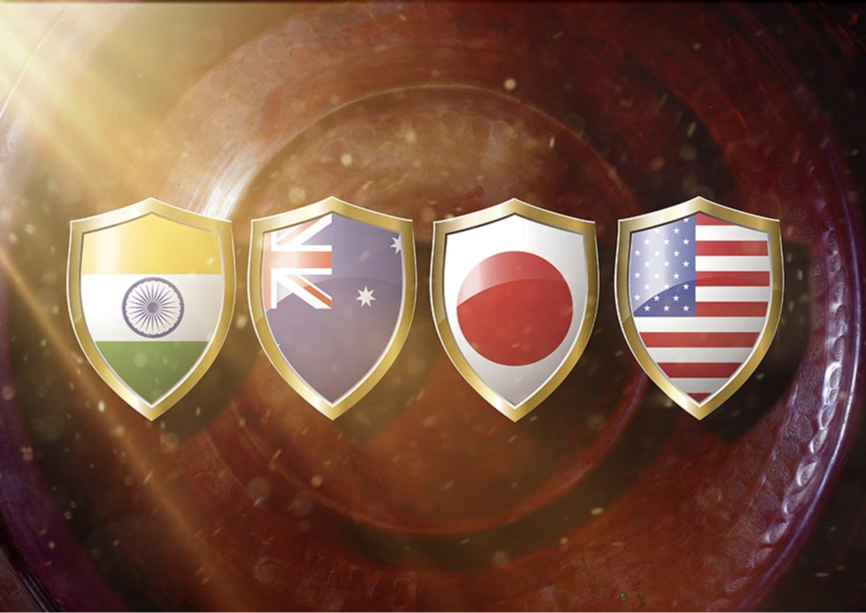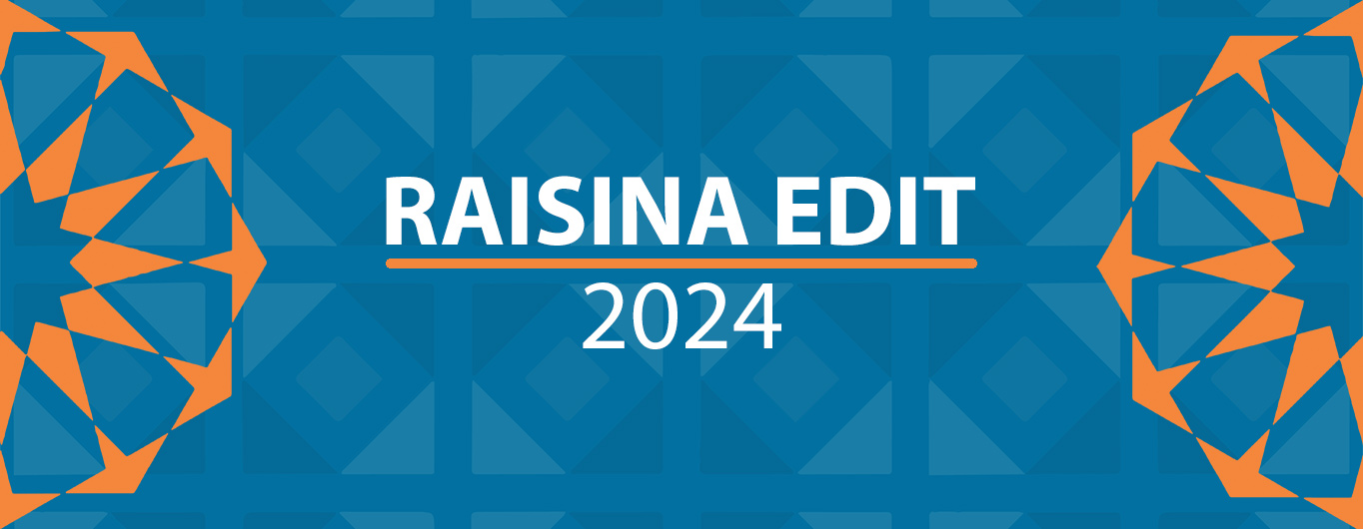
When the Quad was revived in 2017, Chinese foreign minister Wang Yi said that it would dissipate like sea foam in the ocean. That falls into the category of wishful thinking. The Quad members have invested enough reputational capital into the Quad that they don’t wish it to fail, particularly after leader-level summits were instituted in 2021.
But it might be closer to reality than the optimists who made grand claims that the Quad would make “a major contribution to the stability and prosperity of the whole of the Indo-Pacific region.” It is a bad look when two leaders’ meetings in a row have to be rescheduled. The meeting in Australia was cancelled just the week prior when President Biden was unable to travel because of a debt ceiling domestic political crisis. Most recently, President Biden did not accept an invitation from Prime Minister Modi to hold a leaders summit in India in January, meaning it will be postponed to the second half of 2024. This has the “sea foam” brigade frothing.
The meeting in Australia was cancelled just the week prior when President Biden was unable to travel because of a debt ceiling domestic political crisis.
So, what is the trajectory of the Quad and, crucially, is there any change in the commitment of the four members?
One signal is, that after President Biden was unable to attend the Australian meeting, efforts were made to convene meeting of all four partners in Hiroshima around the G7 meeting. The 2023 Leaders’ Summit culminated in the release of a Joint Statement and, interestingly, a Quad Leaders' Vision Statement that reaffirmed the leaders “steadfast commitment” to work through the Quad.
Key announcements included:
- A Statement of Principles on Clean Energy Supply Chains in the Indo-Pacific and an accompanying Clean Energy Supply Chains Initiative directed towards facilitating research, development and projects related to clean energy manufacturing and deployment.
- The establishment of a Quad Health Security Partnership, including activities to build the region’s capacity to detect and respond to outbreaks of diseases with epidemic and pandemic potential. This included support for electronic health information systems and coordination of outbreak responses.
- A Quad Infrastructure Fellowships Program, aiming to empower more than 1,800 of the region’s infrastructure practitioners to design, build and manage quality infrastructure in their home countries, and a Quad Partnership for Cable Connectivity and Resilience directed towards strengthening cable systems in the Indo-Pacific.
- Cooperation with Palau to establish a deployment of Open Radio Access Networks (Open RAN) to enable countries to expand and modernise their telecommunications networks.
This suggests that the four Quad countries’ commitment to the Quad continues, in line with what the leaders describe as the Quad’s “positive, practical agenda”.
It continues the Quad’s record of initiatives that meet twin objectives: building increasing links across the Quad members and using the partnership to provide public goods for other countries. On this first objective, the trajectory of the Quad has been for ever-more cooperation across officials, military and working groups.
Quad working groups have engaged on key issues of global public interest ranging from health, education, infrastructure, space, communications and cyber, contributing to provision of public goods.
Meetings of top-level officials have been a regular occurrence, encompassing the four members’ navy chiefs. Australia was invited to rejoin the annual Malabar naval exercise in 2020 with Quad partners, and a series of working groups have been established. Quad working groups have engaged on key issues of global public interest ranging from health, education, infrastructure, space, communications and cyber, contributing to provision of public goods. The Quad has also focused on people-to-people ties amongst its members. The Quad Fellowship, established in 2021, has seen an annual intake of 100 doctoral and masters students from Quad members undertake degrees in leading American STEM universities.
These are all positive developments. But people who saw the Quad as a massive shift in the strategic environment will likely be disappointed. Measures like these are not immediately transformative for stability and prosperity across the vast Indo-Pacific region. Often, they are not very flashy. But they fulfil the aim of building webs of integration between the four Quad members—while making practical, if often small scale, contributions to other countries in the region. More subtly, the work the Quad is doing on standards and principles—such as the Quad Principles on Critical and Emerging Technology Standards, the Quad Joint Principles for Secure Software and the Quad Joint Principles for Cyber Security of Critical Infrastructure—all provide an alternative to Chinese standards being the default.
After having been established and building up their momentum, the various working groups, networks and officials-level contact is likely to continue, gradually building habits of cooperation. The constituency of supporters for the Quad has steadily grown beyond security circles in each country.
It will gradually build linkages between the four countries, which will positive spillover effects for other Indo-Pacific countries.
All these factors mean that the disappearance of the Quad is extremely unlikely so long as the geopolitical environment that gave it impetus continues. The question is how much impact it will be able to have. At worst, it could become one of the zombie institutions in international affairs. At best, it will gradually build linkages between the four countries, which will positive spillover effects for other Indo-Pacific countries. The answer will be decided by the commitment of the four member countries, including their drive for engagement, level of domestic support and bureaucratic capacity.
So, do the four members continue to be positive about cooperation through the Quad? Australia’s positive stance on the Quad is not likely to change, given the complete consonance between the Quad and Australia’s broader foreign policy goals. The US alliance, increasing security cooperation with Japan and increasing linkages with India at all levels are some of Australia’s key objectives. The Quad is viewed as a key pillar in Australia’s foreign policy that complements other cooperation. This suggests that Australia is likely to remain enthusiastic and commit resources. Japan is similarly, with no obvious change in approach.
Despite the Quad being central to the US’ Indo-Pacific Strategy, at the moment, the US is distracted and is likely to stay so. In a US election year, domestic issues will predominate. Even in international policy, wars in Europe and the Middle East mean that US attention to Asia will be more limited.
The US alliance, increasing security cooperation with Japan and increasing linkages with India at all levels are some of Australia’s key objectives.
However, this means that the role of India will be crucial. A key variable for Quad success will be India’s level of commitment and stake in its success.
At present, it looks like there is a durable support base for the Quad in all four member countries.
So what should be the next steps for the Quad? It should be to continue to do what it is doing, to focus on delivery of its promises and to build on areas of success. This is what will eventually make it more than sea foam—froth and bubble without any substance behind it. The Quad’s success is imperative for an open and secure Indo-Pacific.
Melissa Conley Tyler is Executive Director of the Asia-Pacific Development, Diplomacy & Defence Dialogue (AP4D), an initiative funded by the Australian departments of foreign affairs and defence and hosted by the Australian Council for International Development.
The views expressed above belong to the author(s). ORF research and analyses now available on Telegram! Click here to access our curated content — blogs, longforms and interviews.




 PREV
PREV



